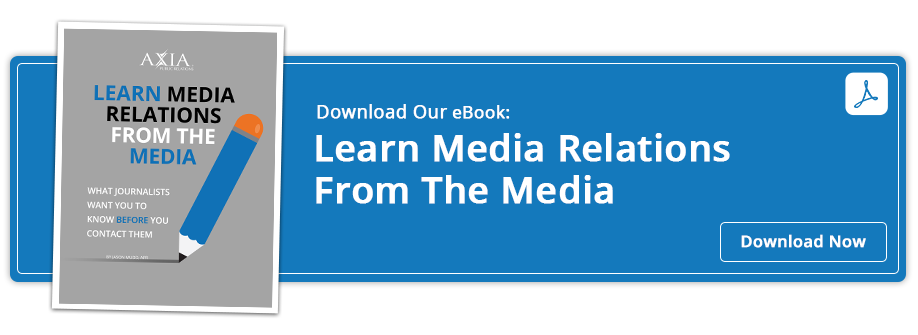 Media relations are important to your company’s earned media coverage
Media relations are important to your company’s earned media coverage
I recently attended a “Meet the Media” event with a professional PR association. While there, I noticed some common mistakes PR people tend to make that turn off media personnel. Most of the frowned-upon behaviors seemed obvious, but when you’re determined to pitch a story, it’s easy to make the same mistakes.
Don’t set yourself up for failure; know how to avoid these major faux pas:
1. It is important for the reporter, editor or producer to know you personally. This will make pitching stories much easier because both parties know what to expect. A journalist who knows you trusts that you’re bringing her a credible and newsworthy story, and you know what kind of material she likes to produce. You should also be familiar with the three most important pitching tips.
2. Do not over-contact. Call once and send one email. If you go overboard with trying to reach a reporter, it will shut down his interest completely. He may even instantly deny your future pitches before reading them because he may remember you as unreasonable and desperate. Maintain your sensible judgment when contacting the media.
3. Offer the right content. The essence of your story must match your chosen outlet. An outlet known for investigative reporting would not be your go-to outlet for a news release concerning your company’s newest location. Instead, change the perspective of your content to fit the media source you are pitching. Make sure your grammar is impeccable and know what to do before you send out another press release or pitch to ensure you are working efficiently with the media.
4. Get to the point. With hundreds of emails per day and myriad stories coming in at any given time, journalists don’t have time to sort through lengthy content. One of the reporters I spoke with strongly advised against using the subject line “Breaking News” because his entire inbox was filled with that exact headline – you would have no hope of standing out. Provide the important details of your story while keeping it brief. Make specific note of how your content will help the reporter’s audience.
5. Have a PR agency handle your company’s media relations. Good media relations is the core of effective PR. This is how you gain your brand more earned media coverage. At Axia Public Relations, we leverage our strong relationships with the media every single day for our clients’ benefit. Download our e-book Learn Media Relations from the Media to see what journalists want in order to give your company the coverage you need to grow.

Katie Boyles is currently studying public relations at University of North Florida. She graduates in 2016 with a Bachelor of Science in communication.
Featured image credit: 123rf.com
Topics: public relations, news release, media


Comment on This Article